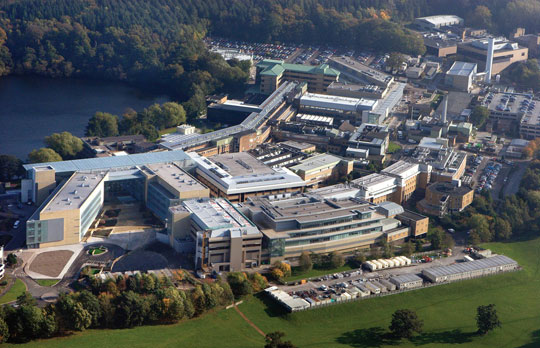AstraZeneca Reduces Workforce And Relocates Global Corporate Headquarters To UK
AstraZeneca announced yesterday plans to reorganise its strategic research and development centres as it aims to establish itself as a global leader in biopharmaceutical innovation.

As part of the major restructure, AstraZeneca said they are axing jobs, relocating staff, significantly reducing activities at the Alderley Park R&D centre and investing in a new $500 million research hub in Cambridge which will become the company’s global headquarters by 2016.
The aim of the reorganisation is to boost revenue as its pipeline medicines lag with 1,600 jobs in the UK and US being cut in the hopes of saving the company $190 million annually. This news comes just over a year since AstraZeneca announced 7,300 job cuts as part of its cost-cutting drive. The new strategy has been part of a six month internal restructure process launched by Pascal Soriot, the company’s new chief executive.
With changes that are being referred to as evolutionary rather than revolutionary by Citigroup, Mr Soriot believes this is an important move for the company: “The strategic centres will allow us to tap into important bioscience hotspots providing more of our people with easy access to leading-edge academic and industry networks, scientific talent and valuable partnering opportunities”.
The intention is to locate the global centre for R&D in Mölndal, Sweden, with other global R&D centres housed in Boston and the UK. Large biological drug research will remain at AstraZeneca’s Medimmune subsidiary in Gaithersburg, Maryland.
Of course not everyone is happy about the news, particularly when it comes just five months after the Alderley Park centre secured a £5 million government grant to develop the research and development centre there. The Financial Times reported Mark Downs, chief executive of the Society of Biology, as saying that it was a “sad day” for many in the UK’s pharmaceutical industry. “This latest announcement of at least 700 job losses at AstraZeneca risks further reducing the UK’s collective capability in drug development”.
However, Stephen Whitehead, ABPI CEO, embraced the move, noting: "AstraZeneca’s decision to locate their global corporate headquarters and one of three global strategic research and development centres in Cambridge is welcome news for the UK and underlines our status as a leader in life sciences”.
The UK Guardian observed that as the drug development industry increasingly operates through collaborative efforts, with 40 per cent of AstraZeneca's own pipeline being partnerships of some form; it makes sense to focus activities in the UK on a new multi-million dollar facility in Cambridge.
Soriot is making a full presentation of the company’s strategy on Thursday. We await with interest the outcomes from that and will keep you updated.
